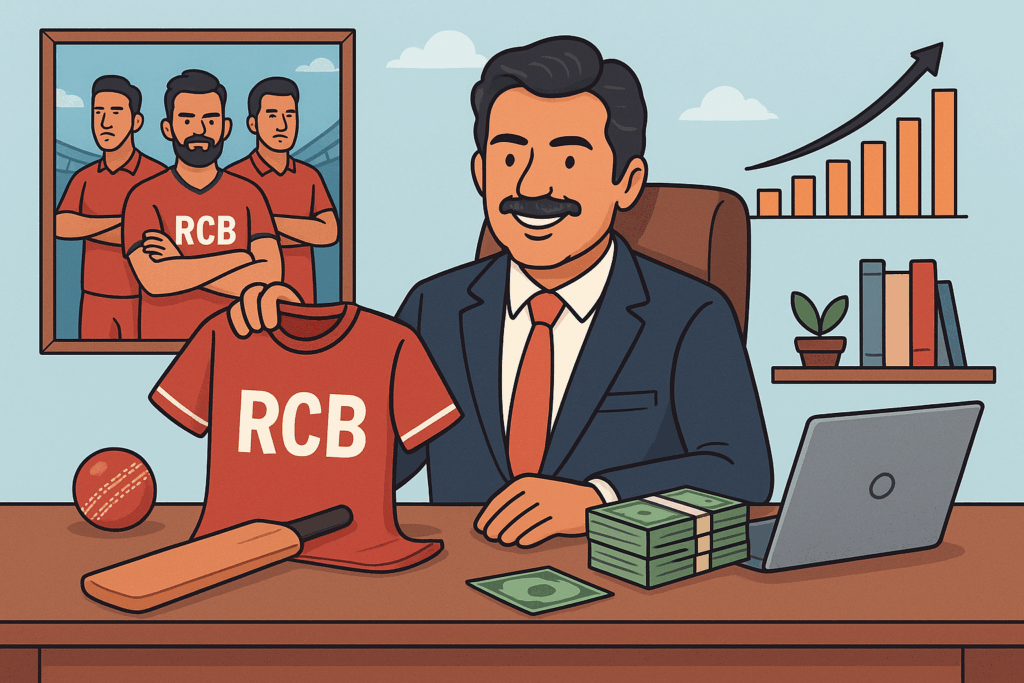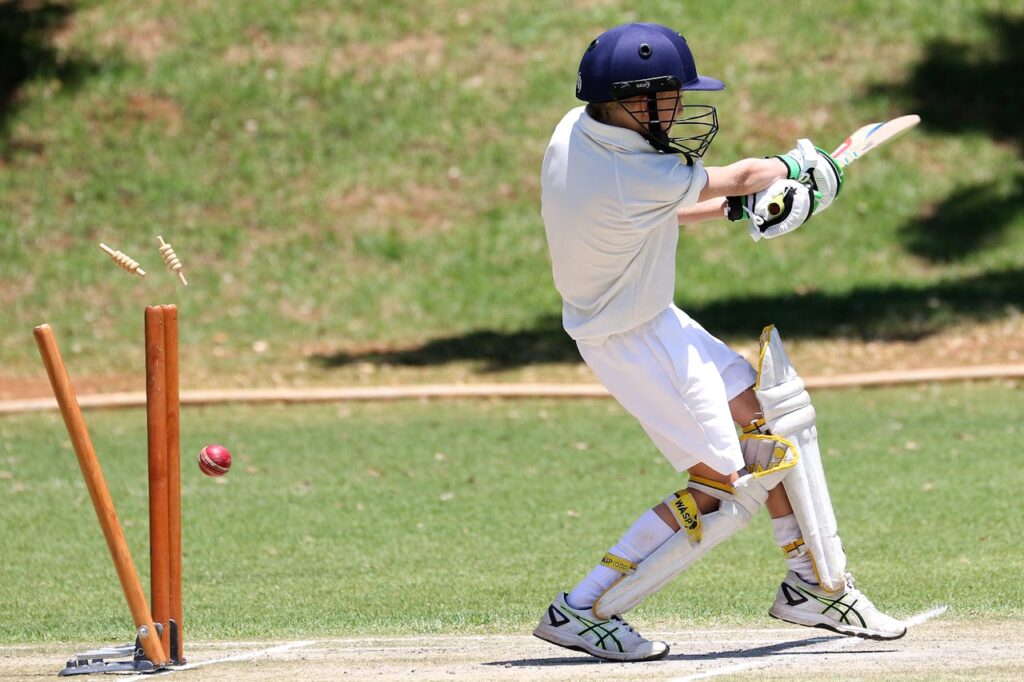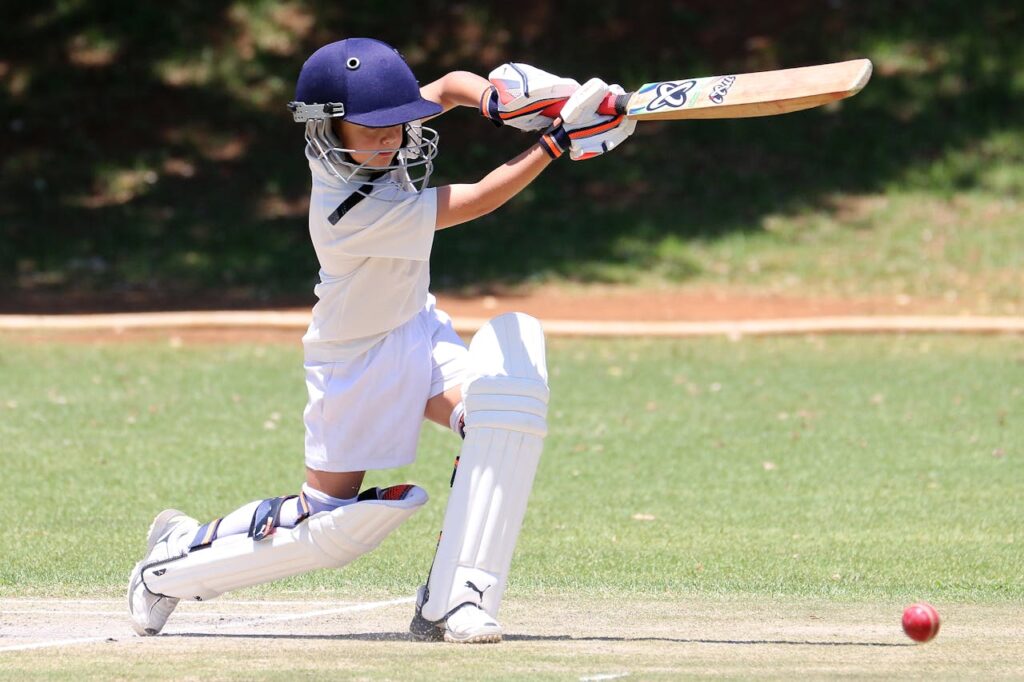Cricket in India isn’t just a sport—it’s a vivid tapestry of hope, devotion, strategy, and raw emotion. Nowhere does this intensity manifest more fiercely than in the Indian Premier League, where every franchise embodies fierce ambition and city pride. Of these, few teams stir the collective imagination quite like Royal Challengers Bangalore (RCB). Their journey—a rollercoaster of near-misses, stellar performances, and the passionate loyalty of millions—begs a deeper question: Who really is the RCB team owner, and what defines the leadership that steers this cricketing juggernaut?
Table of Contents
- The Birth of an IPL Dream: Who Owns RCB?
- Understanding RCB’s Ownership Structure
- Early Era: Dr. Vijay Mallya and United Spirits
- The Diageo Transition: Leading from Behind the Scenes
- RCB Team Owner in Detail: Company, People, and Strategy
- United Spirits & Diageo: Global Powerhouses
- Key Decision Makers: Board, CEO, and Franchise Head
- Net Worth, Brand Value, and Business Impact
- Legacy and Controversies: The Highs and Lows of RCB Ownership
- The Evolving Role of Ownership in Team Culture
- RCB’s Management Mechanics: Behind-the-Scenes Decision Making
- Owner Influence on Team Building: From Auctions to Academies
- Owner’s Involvement: Public Persona vs. Corporate Governance
- Tables & Stats: RCB Owner Comparison, Brand Value
- Frequently Asked Questions about RCB Team Owner
- Conclusion: What Makes RCB Ownership Unique?
The Birth of an IPL Dream: Who Owns RCB?
When the IPL was conceptualized, each franchise was more than just a sporting entity—it was an ambitious business enterprise, a branding exercise, and, for the city of Bangalore, a rallying point. Securing the RCB team provided a chance to mold one of the world’s most technologically advanced cities into a cricketing force. The winning bidder? United Spirits, a behemoth in the Indian and global alcoholic beverages industry.
But the intrigue didn’t end there. Ownership of RCB is a story that intertwines high-profile personalities, shifting business alliances, boardroom drama, and a quest for cricketing glory. At the heart of it, the question persists—who is the owner of RCB? The simple answer is United Spirits Limited, but the real narrative is far richer.
Understanding RCB’s Ownership Structure
Early Era: Dr. Vijay Mallya and United Spirits
For many fans, the face of RCB ownership was once Dr. Vijay Mallya—flamboyant, controversial, and never out of the limelight. As the then-chairman of United Spirits, Mallya’s acquisition of the RCB franchise was seen as both a statement of intent and a move to cement his personal and corporate brand. His penchant for the grand—be it parties or publicity—meant RCB was always at the IPL’s centerstage.
RCB’s signature red-and-gold kit and their larger-than-life brand presence mirrored Mallya’s own image. He was hands-on: attending auctions, signaling preferences for star cricketers, and fostering a culture of expressive, attacking cricket.
Yet beneath this glamour, Mallya’s business empire was shifting. Financial headwinds and legal troubles began to cloud United Spirits’ horizon. Eventually, Mallya receded from active management, and the ownership mantle underwent a transformative shift.
The Diageo Transition: Leading from Behind the Scenes
As United Spirits’ parentage shifted to Diageo—one of the world’s largest spirits companies—RCB’s leadership entered a new era. No more flamboyant figureheads; instead, a professional, corporate-driven approach took hold. The days of hands-on owner involvement gave way to boardroom strategy, careful brand positioning, and a focus on sustainable growth.
Diageo, headquartered in London, is renowned for its stewardship of global brands—Johnnie Walker, Smirnoff, Guinness. Their philosophy? Stable, long-term returns, judicious investment, and a studious approach to team management. United Spirits operates RCB as a wholly-owned subsidiary, with executive decision-making now firmly in the hands of senior management and dedicated franchise leadership.
RCB Team Owner in Detail: Company, People, and Strategy
United Spirits & Diageo: Global Powerhouses
United Spirits Limited (USL)—an iconic Indian brand—is the name you’ll find listed as the official RCB team owner. But dig into company records and you find Diageo, one of the top spirits conglomerates globally, as the ultimate power behind the scenes. In the world of sports business, this matters: ownership sets the tone, provides the capital, and dictates strategic direction.
| Company | Role | Notable Brands |
|---|---|---|
| United Spirits | RCB Team Owner & Operational Control | McDowell’s No.1, Royal Challenge |
| Diageo PLC | Majority Owner of United Spirits (Parent) | Johnnie Walker, Guinness |
This international backing gives RCB a financial advantage—steady investment, access to marketing muscle, and immunity from the sort of cash-flow crises that have afflicted other franchises. The RCB owner company is also adept at leveraging the team for both national and global branding campaigns, making Bangalore’s squad a flagship face for United Spirits and Diageo in sports.
Key Decision Makers: Board, CEO, Franchise Head
The face of RCB’s daily strategy and execution is often its CEO and the professional management—not a singular, charismatic owner. Over the years, names like Anand Kripalu (former MD & CEO of United Spirits) and Prathmesh Mishra (Chief Commercial Officer for Diageo India and RCB franchise head) have been at the helm.
Management is deeply intertwined with:
- Player retention strategies
- Sponsorship and commercial deals
- Youth development programs
- Fan engagement and digital outreach
This layered, corporate style of management reflects Diageo’s standard operating procedure—risk-averse, process-driven, but always ambitious. Unlike teams where owners are routinely seen in dressing rooms or at post-match celebrations, RCB’s owner integrates with the team through polished business practices.
Net Worth, Brand Value, and Business Impact
Revenue, returns, and brand value aren’t just IPL metrics—they are trophies in the boardroom. For any RCB ipl team owner, understanding financial performance is key. According to market analysts and brand valuation surveys, RCB stands as one of the most valuable franchises in the league, often trailing only Mumbai and Chennai in overall brand metrics.
RCB Team Owner Net Worth & Franchise Valuation Details
| Metric | Estimate | Notes |
|---|---|---|
| Owner Company Net Worth | $9-10 billion (Diageo) | Global, publicly listed company |
| RCB Franchise Valuation | $1.1-1.2 billion approx. | Frequently in top 3 IPL brand values |
| Annual Team Revenue | Varies, $40-50 million | From sponsorship, TV rights, merchandise |
Why does this matter? Because the scale of financial operations influences everything from squad assembly and managerial appointments to the relentless pursuit of fan engagement through high-production social media, retail stores, and even RCB-themed cafes.
RCB’s commercial partners are a who’s who of consumer brands—Myntra, Muthoot, DP World and more—each contributing to the team’s revenue pool. The diversity and scale of these partnerships underscores the business acumen of its owners.
Legacy and Controversies: The Highs and Lows of RCB Ownership
No story about the rcb team owner is complete without addressing the tumultuous chapters: boardroom politics, financial controversies, and the public fall of Dr. Vijay Mallya.
Dr. Vijay Mallya remains both a foundational figure and a cautionary example. His early leadership built RCB’s audacious brand and recruited marquee players. Under his stewardship, the team reached playoff stages, packed stadiums, and captured the imagination of millions—even as silverware eluded them on the field.
However, United Spirits (and by extension RCB) became entangled in the larger legal and regulatory woes surrounding Mallya, leading to protracted disputes over ownership stakes, governance, and his continued involvement. Eventually, Diageo exerted full control, pushing for boardroom stability and professional management.
Noteworthy Ownership Controversies
- Shareholding battles between United Spirits and Mallya-associated entities.
- Legal proceedings regarding personal and company liabilities.
- Transition from a personality-driven to a corporate-driven governance model.
Through it all, RCB’s core fanbase never wavered. While some franchises faltered amid financial disarray, royal challengers bangalore owner ensured financial continuity and transparent operations—key factors for long-term IPL credibility.
The Evolving Role of Ownership in Team Culture
Ownership shapes not just the team’s fortunes, but also its cultural identity. Under United Spirits and subsequently Diageo, RCB has transformed into a brand-driven, globally recognized entity. But how has this changed team culture?
- Decision-making now runs through committees and boards, not individuals.
- Focus has shifted to holistic player development, with analytics, wellness programs, and mental health support becoming standard.
- Public engagement is professionalized: from social media to stadium experiences, there’s a relentless push to maintain RCB as a lifestyle brand, not just a cricket team.
Still, traces of the original, swashbuckling RCB spirit—once the hallmark of Mallya’s tenure—persist. The quest for an elusive trophy still fuels every transaction, every merchandising campaign, every fan contest.
RCB’s Management Mechanics: Behind-the-Scenes Decision Making
Gone are the days when franchise owners lobbied personally for player signings or made on-the-spot auction decisions. Under Diageo’s stewardship, the process is meticulously planned. Each auction is preceded by months of intensive analysis—data scientists, cricketing analysts, and seasoned scouts working in concert.
Key Members of RCB Management Structure:
- CEO: Oversees daily operations, strategy, and financial performance
- Team Director/Franchise Head: Coordinates between corporate and cricketing departments
- Coaching Staff: Head coach, assistant coaches, analysts
- Player Retention Committee: Evaluates player contracts and auction targets
- Marketing & Fan Engagement Division: Manages brand activations, merchandise, digital communities
Decision-making is collaborative. During IPL auctions, the RCB “war room” is a cauldron of real-time data, scenario simulation, and cross-functional collaboration involving both cricketing experts and board representatives.
Owner Influence on Team Building: From Auctions to Academies
While the owner’s presence may feel distant, their strategy is imprinted on all aspects of team-building, often unseen but deeply influential.
Auction Tactics and Player Recruitment
RCB’s approach at auctions has always been big-game hunting—pursuing international stars and bold talents. Virat Kohli, AB de Villiers, Glenn Maxwell—acquisitions emblematic of a franchise aiming for instant impact and global appeal. The underlying motivation is as much about branding and fan engagement as on-field results—a clear indication of Diageo and United Spirits’ dual business-cricket philosophy.
Youth Development and Academies
Recognizing the long-term revenue and performance benefits, rcb team owner has invested heavily in grassroots programs—junior cricket initiatives, partnerships with local clubs, and cutting-edge sports science collaborations. This isn’t just corporate social responsibility; it’s a blueprint for growth that will sustain the franchise long after the current crop of stars retires.
Owner’s Involvement: Public Persona vs. Corporate Governance
Rarely do RCB’s current owners—represented by United Spirits or Diageo—seek the limelight unlike their predecessor. This approach allows:
- Cricket professionals to run the cricket,
- Business professionals to run the business,
- Fans to enjoy a consistent, drama-free engagement.
Still, the shift away from a visible, passionate owner hasn’t eroded the franchise’s popularity. If anything, it injects stability and neutrality. Sponsorship contracts are long-term and reliable. Staff turnover is low. The brand projects confidence and ambition without the volatility of personality-driven leadership.
Tables & Stats: RCB Owner in IPL Franchise Landscape
Let’s ground the ownership narrative by comparing RCB’s owner profile with other major IPL teams.
| Franchise | Primary Owner Entity | Owner Background | Net Worth* | Owner Style |
|---|---|---|---|---|
| Royal Challengers Bangalore | United Spirits/Diageo | Beverages (Alcohol), MNC | $10B (Group) | Corporate, Board |
| Mumbai Indians | Reliance Industries | Oil, Retail, Conglomerate | $95B (Group) | Family, Corporate |
| Chennai Super Kings | India Cements | Cement, Industry | $1B+ (Group) | Corporate |
| Kolkata Knight Riders | Red Chillies (Shah Rukh Khan) | Entertainment, Film | $600M+ (SRK) | Celebrity, Active |
| Rajasthan Royals | Emerging Media, Investors | Investment Consortium | N/A | Investor-Driven |
*Net worth estimates reflect group/owner entity, not team-specific assets.
RCB Brand Value and Owner’s Impact
RCB, despite never having clinched a trophy, consistently ranks among the top IPL sides for fan engagement, sponsorship revenues, and global digital reach. That’s testament to ownership vision—a fusion of aggressive player spending, relentless marketing, and an enviable lifestyle brand.
Frequently Asked Questions About RCB Team Owner
Who is the owner of RCB?
United Spirits Limited, a subsidiary of Diageo PLC, owns the Royal Challengers Bangalore franchise. The team operates as a flagship sports asset under United Spirits in India.
Who was the original owner of RCB?
The original and single owner has always been United Spirits. However, Dr. Vijay Mallya, as chairman, was its public face and most influential figure in the franchise’s formative years.
Has the ownership structure changed?
While United Spirits has always held the franchise, the controlling interest shifted from Dr. Vijay Mallya’s direct influence to Diageo’s board-driven management when Diageo acquired majority control of United Spirits.
Who manages the team day-to-day?
The CEO, currently a senior United Spirits or Diageo India commercial officer, leads day-to-day management. The cricketing structure includes a director, head coach, and analytics team, ensuring operations are seamless.
How much is the RCB franchise worth?
Latest brand valuation surveys consistently rank RCB franchise value well above $1 billion, making it a top asset in the IPL.
Is there a possibility of new RCB ownership?
At present, there are no credible reports indicating any change. Diageo and United Spirits express long-term commitment to the franchise and its business potential.
What is the role of Diageo in RCB?
Diageo, as majority shareholder of United Spirits, oversees financial investment, branding, and executive oversight for RCB through its corporate channels.
How does RCB’s ownership compare to other teams?
RCB’s owner is one of the most financially stable and resourceful in the league, due to Diageo’s multinational backing—only paralleled by Reliance’s involvement with Mumbai Indians.
Did any controversies affect ownership or performance?
Legal and reputational issues regarding Dr. Vijay Mallya impacted early legacy but, since Diageo’s takeover, ownership and performance trajectories have been stable.
Conclusion: What Makes RCB Team Ownership a Fascinating IPL Story?
Beneath the chants of “EE SAALA CUP NAMDE” and the thrill of high-octane matches, RCB’s journey is anchored in boardroom drama, strategic pivots, and bold business bets. Unlike franchises where the owner is a celebrity or a solitary magnate, RCB is a masterclass in multinational, professionally managed sporting enterprise.
- United Spirits and Diageo run RCB as a hybrid—a flagship for both Indian aspirations and global standards.
- The absence of micromanagement lets cricket experts shape team destiny while protecting business interests with seasoned corporate oversight.
- Legacy controversies have only strengthened governance, ensuring fans, players, and partners enjoy stability.
In the ever-evolving theater of Indian cricket, where fortunes can flip in a session and fandom is a currency, the RCB owner story is about more than stakes and stat sheets. It’s about resilience, reinvention, and the sheer audacity to dream. Their ultimate trophy, perhaps, lies in this relentless pursuit of evolution—where management acumen and sporting spirit thrive hand-in-hand.
When Bangalore next takes the field, and the world watches, remember: there’s more than red jerseys and star cricketers. There’s a story of ownership—laced with ambition, vision, and the unyielding belief that glory, though elusive, is never out of reach. That’s the power—and the passion—of the RCB team owner.



